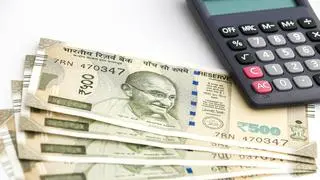The Olympic Games is no stranger to controversy, though this has traditionally been confined to the dealings of the International Olympic Committee, international politics, or drug-related misadventures of competitors rather than the sponsor companies that fork out millions.
When the 2002 Salt Lake City Games was clouded in a bribery scandal, it was the sponsors who were the indignant ones, irate that the Games they were bankrolling could tarnish their reputation.
There have been occasional clashes with sponsors. As Prof Alan Tomlinson of the University of Brighton notes in a 2006 article, in 1931, the IOC was left in a peculiar position when an enterprising Los Angeles baker called Paul Helms, who had secured a local sponsorship contract, registered the Olympic rings logo and the very word ‘Olympic' across all US states.
As the IOC had failed to register ownership, repeated attempts to regain control of the brand were of little avail till Helms voluntarily gave up the rights in 1950.
More recently, the first truly profitable games in Los Angeles in 1984 were nicknamed the “Hamburger Olympics” in ironic homage to the fact that one of its chief sponsors was McDonalds, while Coca Cola's sponsorship of the torch relay since 1992 has led to many a raised eyebrow.
By and large, however, such partnerships have been shrugged off as the inevitable consequence of holding a high-cost global sporting event, as each host city attempts to outdo its predecessor.
Prof Tomlinson notes that while the modern Olympics' early proponents, including founder Pierre De Coubertin, warned about the dangers of commercialisation, this didn't stop them from embracing corporations.
He notes that the 1924 Paris Olympics' main stadium was “bedecked in advertisements” for companies ranging from drinks maker Cinzano to bedtime favourite Ovaltine.
Growing media coverage
The singular lack of critical attention that Olympic sponsors have received over the years helps explain why it didn't occur to Dow Chemicals that by taking up that role it would revive an issue it hoped had been relegated to history — in the West at least.
The view amongst Dow supporters that the Bhopal campaign had passed its peak was highlighted in the recent emails of US think-tank Stratfor, published by WikiLeaks.
In one sent just before the 25th anniversary of the disaster in December 2009, the analysts monitoring the media and campaigners' activities discussed what they saw as the failure of the campaign to gather momentum.
“The professional anti-Dow types have made a slight nod toward expanded activity, but never followed through on it,” wrote one of them. “Am I missing a node of activity or a major campaign that is to come? Has the Dow campaign been more successful than I think?”
That's not a question they'd have even bothered to ask two years later as the anti-Dow campaign threatens to overshadow this summer's games. The Stratfor emails to Dow over the course of 2011 meticulously chart just how media coverage of the protests has grown.
Dow has two Olympic roles. In July 2010, it was announced that Dow would join The Olympic Partners (TOP), the IOC's elite programme currently comprising just 11 of the games' biggest backers, including Coca Cola, General Electric, McDonalds, Omega, and Proctor & Gamble. Dow's deal extends all the way through to 2020.
And just over a year later, in August 2011, it won a tender to provide a “sustainable wrap” for London's main stadium — a feature that the Chairman of the London 2012 Organising Committee (LOCOG) Mr Sebastian Coe, described as the “icing on the cake.”
Vetting procedure
Both decisions have provoked outrage that seems to grow ever stronger, with many British MPs joining the Indian Olympic Association in calling for Dow to be dropped.
Ms Meredith Alexander, a member of the ethics committee set up to monitor London's handling of the games, recently resigned in protest at Dow's presence. “One of the things that is really telling for me is that neither LOCOG nor the IOC is willing to meet with representatives of the victims of Bhopal to hear their side of the story,” she told me.
It is highly unlikely that Dow, the IOC or LOCOG were aware of the “minefield” they would be stepping into, says Mr Ian Henry, director of the Centre for Olympic Studies at Loughborough University.
He believes that vetting procedures for sponsors by the IOC have screened out controversial choices in the past.
“The IOC is different to most sports organisations… it sees its primary goal as ethical, not sporting, so any judgment on sponsors has to keep in mind the objective of the IOC as a moral movement,” he argues.
Quite how that procedure works isn't clear. My request for details of the procedure for vetting partners met with the curt response that the “The IOC does not enter into agreements with any organisation that it believes does not work in accordance with the values of the Olympic Movement as set forth in the Olympic Charter.”
There was no elaboration on what that process involved.
Wider moral question
Meanwhile LOCOG, which adheres to the view that “Dow never owned or operated the facility in Bhopal and remediation is under the control of the courts in India” — a position that could be mistaken for a Dow press statement — pointed me towards its sustainable sourcing code.
While this listed the environmental, animal rights and other criteria the products a supplier brought to the Olympic Games should meet, there was no mention of a firm's wider moral responsibilities, or what should be done about a company accused of failing to live up to responsibilities elsewhere.
The absence of a moral dimension in relation to sponsors was underlined during a parliamentary discussion involving Mr Coe late last year.
When one MP who questioned him about Dow's responsibility towards Bhopal victims suggested that “there is a moral question there,” Mr Coe's response was: “You are telling me that.”
Stark choice
It is perhaps unlikely that the Olympics will run into a sponsorship controversy quite as messy in the future; after all, few events can match the horror of what happened in Bhopal 27 years ago, rightly recognised as the worst industrial accident in human history.
That, however, doesn't make the Olympic system's lack of a transparent, systematic process for vetting its sponsors, and taking into account the views of critics, any less shocking.
For all the controversies that have dogged the Olympics in the past, it's a testament to the moral force many people associate with the Games that the public debate on Dow's responsibilities has been revived globally.
The IOC and LOCOG now have a stark choice. They can either uphold the view of the Olympics as a positive force, a global moral undertaking — and drop Dow.
Or they can confirm the view of the Olympics' detractors: that the Games are the plaything of a corporate-dominated, non-transparent old boys' network, adept at invoking the lofty ‘Olympic spirit' when needs must — but when it comes to the crunch, invariably bow to its sponsors' more down-to-earth priorities.








Comments
Comments have to be in English, and in full sentences. They cannot be abusive or personal. Please abide by our community guidelines for posting your comments.
We have migrated to a new commenting platform. If you are already a registered user of TheHindu Businessline and logged in, you may continue to engage with our articles. If you do not have an account please register and login to post comments. Users can access their older comments by logging into their accounts on Vuukle.